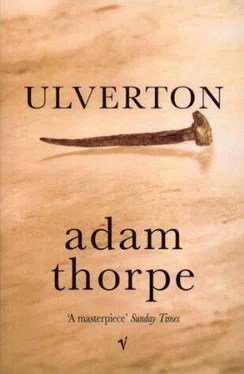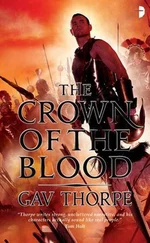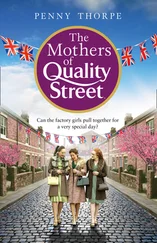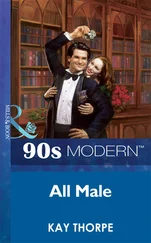I put the straw beneath the Plough. It was not I who put it to the flame. I don’t know who did. Then the pieces of the Machines were placed in a heap in the Court & we
down the widest ride yet I fell from the damned beast into
candles on the table. They were took when the Mob departed. About ten men staid the main of the day, demanding of me beer & bread & cheese all the while, until there was none
hurt, bar a laceration upon my arm. My only black-silk coat, with the pearl buttons, is Chalk from collar to tail. I have been baptised, says the good Norcoat, in the veritable sod. But that is little matter when thou, my sweetest love, art in my mind: your letter, that I have kept in my breast pocket, close to my heart, gave me some service this Morning — or rather, the envelope did — as I was taken with a fit of coughing during an Examination — this an effect of the fall, no doubt — and finding my mouth full of Blood, had nowhere to deposit, but bending down behind the desk as if to pick up my pen, that I had knocked to the floor for this purpose — took the letter from my pocket — released it from the envelope — and used that last sweet-scented vessel as my spittoon. The pauper before me was none the wiser through this salvatory Action, tho’
almost night then. There was no moon: I could not see who it was knocking on the Door. A horn was blown and a man made a noise like an owl
all night of thick words like cheese to be cut up, then wake in a sweat, cough
banged on the roof with our hay-forks: there is no upstairs. The said Roger Pennell came to the Window and said not to do him any harm & we answered that we would not crush a flower,
O — O my Emily! But to set it down sends my pulse sudden up, & I fear these palpitations — no, I must cease worrying you on the instant — this fearful sight was made hideous by the night’s exertions: I had no sleep — I was too tight in the Chest to lay down & coughed the hours away fearfully but not too much Blood — & our sharp north-east of the last days having turned I thought to exercise myself — at dawn — no faintness — nay, I should have stayed within –
were civil. They broke the drum of the machine with a sledge-hammer, and said it was to make better times. I did not know which men they were
muffled from the mist I assure you, my heart. Suffice to say, as I mounted the opposite slope, & the mist clearing, I turned & saw — but the Rooks upon the ridge above, & their infernal clamour, combined with the sight — & made me flushed — & fair giddy — so that I was forced to sit upon a mossy log, until my wits recovered — that I was not mad
about two hundred & fifty of them. They were carrying flags and a horn was blowing: I saw them tear up me fences upon the crest
to anticipate a thing — & to have it dashed! — but I lack sleep, surely — & these wretched papers, that are too thick, & ever roll from my desk to the floor — but to turn & see such a thing, to have one’s mind turned inside out, as it were
with a rake. I saw about two hundred persons come up from the river towards me over the Lawn
Black, black as tho’ of a sudden cast into deathliness — that mocked the albescence of the frost about it — yet the Eye glittered still! O Emily — ’twas a spectre of the most awful hideousness — that leapt up at me — an effect of sleeplessness — & thin light — O the Squire rails & sobs, yet
John Oadam, with a crown of Bedwine (meaning wild Clymatis) wound about his head like feathers & took from the Hedgerows. When I took the said Prisoner into custody I said to him to remove his Crown of bedwine for it was unseemly, and he was no King, not even a Captain
not bombazeen — as you must don soon if our Expectation is correct, my heart — nay, not cloth but soot — common soot — & cinder! Aye — this — awful change but the work of these secret surly creatures, that no doubt hoarded every crumb of charred stuff out their meagre hearths — & scraped their chimneys free of all ancient & inky detritus — then last night like sheep — nay, like wolves — like wolves silently & cunningly — we all unawares, in our rooms — softly mounting that slope — no doubt the whole Mob of them — man, woman & child — all — with bare hands — Donkeys — pails — I can conjecture only — such awful silent cunning — of wolves — and I coughing upon my bed unawares, all the while — they wd have heard — over the night — across the vale — but half a moon — my coughing, & a frost — such stillness — O Emily — scattered about & trampled with ne’er a creak of pail, not a cry! — till that chalky gleam was blinded — doused — to the last — the very last hoof
answering: ‘No it bee only plumes of seed that must be planted on the wind
Plate XXV A RIVER-SCENE
HERE ONCE MORE the transient poetry of nature is most eloquently caught, and I am emboldened to suggest that no brush, wielded by whatever genius, could fashion the rushing water about the rocks with so fine a hand as my humble lens. Though recent rains had swollen the course of the Fogbourne to a considerable degree, this day began clear and fine; but in the time it took to set up my apparatus, the clouds (visible to the left) had altered the light considerably. Passing as they did quite slowly across the sun (being early spring, this was not sufficiently low as to be concealed by the foliage upon the left bank) they imparted a most attractive possibility, that reminded me of none other than the painter Herr Friedrich and his stormy effects. The girl upon the bridge is placed to conceive human variety, but I had a deal of difficulty in persuading her to look into the water, and not at my lens!
The bridge is called Saddle Bridge, and is the southern ‘gate’ into our Village; in rendering a picturesque quality to the subject, its severe state of disrepair serves an ideal purpose, that is naturally lost on those having to clatter across in the dustier world of affairs: indeed, that absent parapet-stone, like a gap in a set of teeth, was reputedly dislodged by nothing heavier than a rook alighting upon it! — causing a coachman a deal of trouble with his reins. The bare poplars upon the right-hand bank assert perspective, and impart a certain grandiosity to the scene, in which the figure of the human might symbolise the fleetingness of our existence. As fleeting, indeed, as the beam of sun that peeped through a slit and silvered the wet rocks in the foreground; an effect one might wait two hours for, and lose in a minute.
Reflections in slow-moving (or still) water, have preoccupied a majority of photographers for quite natural reasons: the beauty of the conception requires merely a stand of trees upon a bank, and favourable light, to succeed — but, it should be cautioned, the result may be as a thousand others. Here, however, the water, upon skipping about the foreground rocks in (as it were) its whitest frocks, takes a tiny plunge and settles, before passing under the darkness of the bridge, into the slow calm that so gratifyingly mirrors, and barely corrugates, that ancient stone arch — to form an O that puts one in mind of gateways, and entrances, and elicits quite other responses from the conventional. And yet, note how the contrary plane of the water surface, highlighted by the glints of leaves and other such matter the river carries upon its bosom, returns the viewer to the strong current of plain reality — which, perhaps, this country girl has averted her gaze from, seeing only fulfilment in the rippling other-world of her fancy!
Plate XXVI THE PROPOSAL
This may occasion surprise, as I am not given to the artificial posing so beloved of my contemporaries in the field of both plate and canvas. Notice, dear viewer, the abashed and twisted posture of the girl — and the blur that should have been, if ordered circumstances had prevailed, the face of her admirer. No, I did not set up my apparatus with a clatter, then move the limbs of my lovers like so many waxworks, and introduce the boat, whose oars had never before been subject to the young man’s sturdy grip. Why otherwise is there that hazy penumbra about the girl’s hand, caught in the act of wiping away collected moisture from the summer heat (for you have no doubt noted the elms beyond in full leaf, and the absence of smoke from the distant cottage, and the creamy frock) or the man’s foot so ungainly twisted inwards as he leans forward — as if the boat is drifting from the bank and he might lose the touch of his love’s fingers, or topple her into the languid water?
Читать дальше










